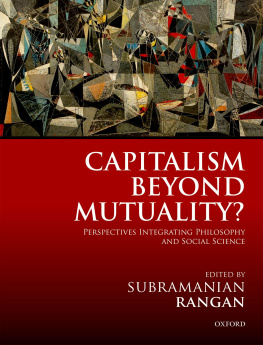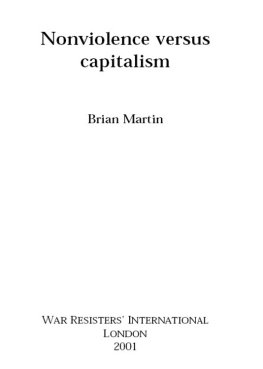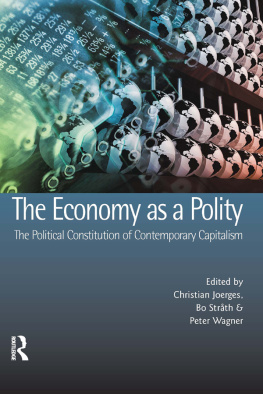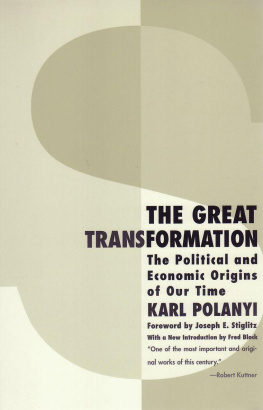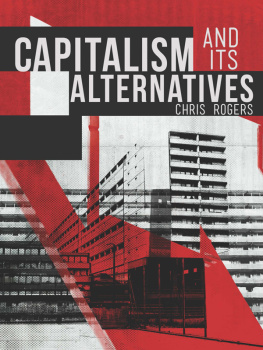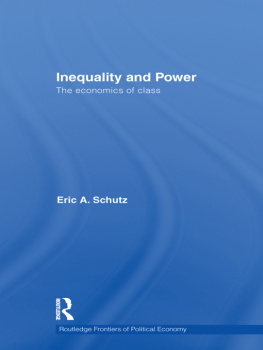Capitalism Beyond Mutuality?

Great Clarendon Street, Oxford ox2 6 dp , United Kingdom
Oxford University Press is a department of the University of Oxford. It furthers the University's objective of excellence in research, scholarship, and education by publishing worldwide. Oxford is a registered trade mark of Oxford University Press in the UK and in certain other countries
Oxford University Press 2018
The moral rights of the authors have been asserted
First Edition published 2018
Impression: 1
All rights reserved. No part of this publication may be reproduced, stored in a retrieval system, or transmitted, in any form or by any means, without the prior permission in writing of Oxford University Press, or as expressly permitted by law, by licence or under terms agreed with the appropriate reprographics rights organization. Enquiries concerning reproduction outside the scope of the above should be sent to the Rights Department, Oxford University Press, at the address above
You must not circulate this work in any other form and you must impose this same condition on any acquirer
British Library Cataloguing in Publication Data
Data available
Library of Congress Control Number: 2017960661
ISBN9780198825067
ebook ISBN 9780192558657
Printed and bound by CPI Group (UK) Ltd, Croydon, cr0 4 yy
Links to third party websites are provided by Oxford in good faith and for information only. Oxford disclaims any responsibility for the materials contained in any third party website referenced in this work.
To Ken Arrow
Preface
The essays in this volume outline and explore concrete approaches to concerns originating in the contemporary practice and theory of our liberal decentralized market-based economic system (aka capitalism). In this system, mutuality has been established and accepted as a prime principle in addressing our interdependence. Now, however, mounting regulations notwithstanding, doubts about the sufficiency of this principle are not only increasingly widespread, they are also increasingly confirmed. Accordingly, the essays here explore whether and how we might help the economic system evolve further into one where mutuality is more systematically complemented by morality. Some such evolution seems necessary and even unavoidable if the economy is to abet desirable outcomes and not only output. When it comes to economic power, its regulation was clearly meant to complement not substitute its education.
Philosophy has a natural role in informing such reflection, and the essays here integrate its moral perspectives with the analysis of social science. Indeed, one core feature of this volume is that, by design, the majority of the essays are co-authored by philosophers and social scientists. (It is not every day that reputed scholars of finance co-author with distinguished moral philosophers.) The aim has been to explore which assumptions of standard social science imported into the world of business merit scrutiny and evolutionhow even in a liberal economy moral ideals and reasoning might inform and influence economic action. What processes of reasoning (including those suggested in constructivist philosophy) offer promise? What organizational and systemic evolution may be necessary to enact a more philosophical (as opposed to a more political) economy? What future research and role for education is required to shape and correct actors interests, preferences, and conduct?
Moral reasoning more than material (economic and technical) reasoning is needed to help ground theory on why, how, and which economic actors might better integrate performance and progress. Moral logics are going to be indispensable because we need to reason about ends and not only means; and because we need to discuss multiple values, not all of which can be compared or exchanged. Material reasoning depends largely on prices, exchange rates, and marginal and dynamic effects. To this logic based on self-regarding consequences, moral reasoning can usefully integrate a logic based on other-regarding appropriateness.
The essays, developed expressly for this volume, are aimed primarily at scholars in the fields of management, strategy, economics and finance, decision science, marketing science, and organization theory. If business scholars are to help advance the economic system, then they must better address units of analysis typical in philosophy, viz. the individual, society, and humanity including other sentient creatures. Ideas such as fairness, well-being, humaneness, esteem, inclusion, justice, and progress all attach to these units of analysis. Scholars in moral and social philosophy with an interest in the dilemmas of the decentralized economic system will likewise find the essays useful.

